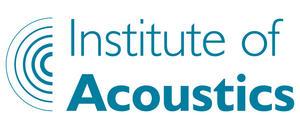Ambient noise in North European seas: monitoring, impact, management (3–5 October 2011, National Oceanography Centre, Southampton) – conference experts highlight how noise affects marine life.
Jacques Cousteau called the oceans the ‘Silent World’. Today, we know that they are anything but. If you think our towns are noisy places, then spare a thought for marine life. Experts say that over the last few decades human activities have increasingly added sound to the marine environment.
That is why international experts on underwater noise are gathering this October at the National Oceanography Centre in Southampton for the Ambient Noise Conference. The two and a half day event is organised by the Institute of Acoustics (IOA) and the Underwater Sound Forum (USF) of the Marine Science Co-ordination Committee.
Low-frequency noise linked with deep-water shipping has increased tenfold in the industrial era. Scientists are concerned that this noise might prevent fish and endangered species of whale from communicating effectively, reducing their ability to feed and mate.
“The steadily increasing number of offshore activities, together with faster and larger industrial and commercial cargo vessels, leads to increasing concerns that sound levels might affect the long-term chances of survival of sensitive species,” says IOA chief executive Kevin Macan-Lind.
The event’s theme is monitoring, impact and management, and leading experts in their respective fields will examine issues relating to rising levels of ambient noise and the increasing pressures on marine life.
Noise as a pollutant
The EC has recognised the potential significance of noise by including two indicators of underwater noise in its criteria for the good environmental status of marine waters, as part of the Marine Strategy Framework Directive (MSFD). Thus, the EC has effectively classified underwater noise as a pollutant.
Recognising that rising levels of ambient noise may pose increasing pressures on marine life, EC Member States are being asked to provide information on trends in ambient noise levels.
Mr Macan-Lind commented “This requires representative measurements at monitoring stations and agreed methodologies for measuring and analysing ambient noise. There are sparse data for ambient noise in coastal waters, for instance around the North Sea, and those which do exist suggest higher levels than those observed in deep ocean experiments. Potential impracticalities and the cost of large-scale programmes motivate the need to learn lessons from existing data and to increase the use of modelling techniques.That’s what this must-attend conference for all those in related fields of expertise is all about.”
Ambient Noise 2011 information
For full conference programme details and to attend, email linda.canty@ioa.org.uk or visit www.ioa.org.uk/events.

